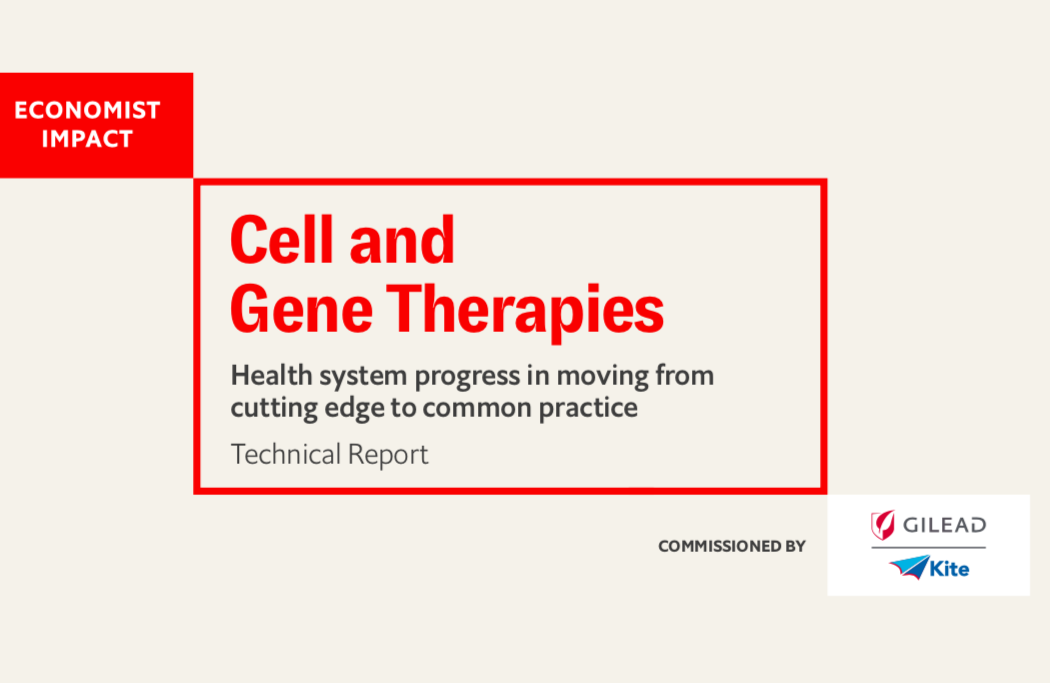Cell and gene therapies (CGTs) change our individual biological blueprints. They might rewrite an individual’s DNA so that it no longer codes for a tragic, early demise, or remove faults which certain cancers exploit to avoid immune systems. However, CGTs are not easy to deploy. They require highly complex interventions by multi-disciplinary teams who rely on complicated supply chains and work in specialised facilities. Nor do they work on every patient. Nevertheless, success is common enough that individuals with previously deadly genetic conditions and cancers now have the realistic hope of a cure.
“Cell and Gene Therapies: Health system progress in moving from cutting edge to common practice” is an Economist Impact white paper, commissioned and funded by Gilead Sciences. The study reviews the current availability of CGTs and estimates future numbers of therapies that are likely to come onto the market up to 2031. We then describe the challenges which the technology presents to various healthcare actors and present a scorecard which examines how well prepared nine countries (Australia, Canada, France, Germany, Italy, Japan, Spain, UK and US) are for rolling out CGTs.
We conclude with five key policy takeaways:
- This is an issue requiring attention today, not one that can wait for tomorrow: Rising numbers of new CGTs will address conditions with larger patient populations.
- Regulatory agencies must build on progress and begin working with healthcare systems to gather real world data: Comprehensive data collection is needed to support conditional approval, and differences in rules between countries should be reduced.
- Payers must prepare to deal with high-cost, potentially high-benefit, therapies in fields beyond oncology and rare diseases: HTA bodies have so far determined the value of CGTs by repurposing existing processes rather than substantially reshaping them.
- Healthcare systems must grapple with the fundamental changes required for introducing new therapies: Diagnosis and referral systems for CGTs remain weak; education of health professionals needs to expand, and investment in specialist facilities is currently insufficient.
- Policy must remain flexible: Policymakers and stakeholders need to consider what is working in other countries and be willing to experiment with new policy models.
Further details about the methods and key findings from the horizon scanning piece and the benchmarking study are available in the technical report.
The report has been commissioned and funded by Gilead Sciences, Inc. The findings and views expressed in the report do not necessarily reflect the views of Gilead Sciences, Inc or Kite, a Gilead Company. Economist Impact bears sole responsibility and full editorial control for this report.






